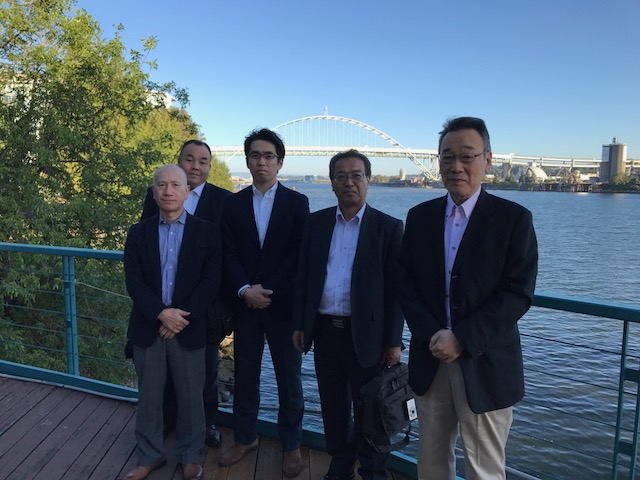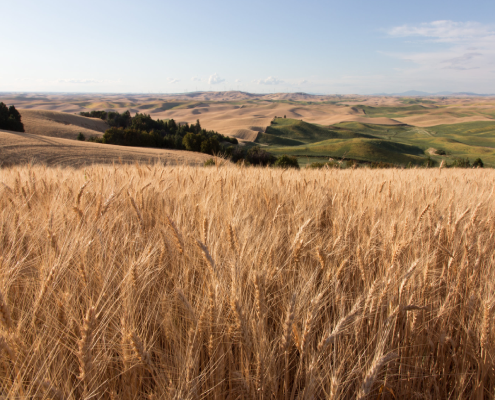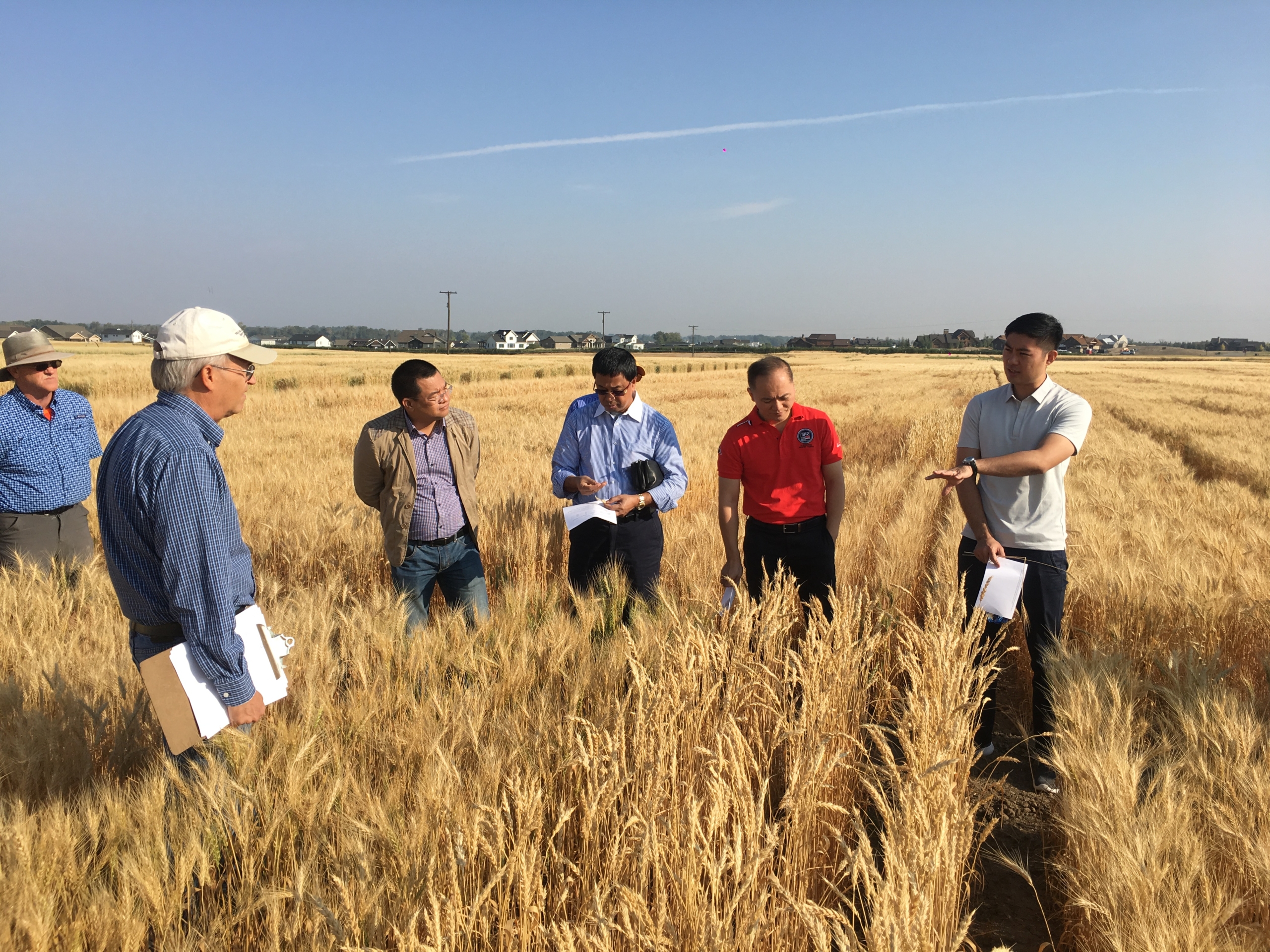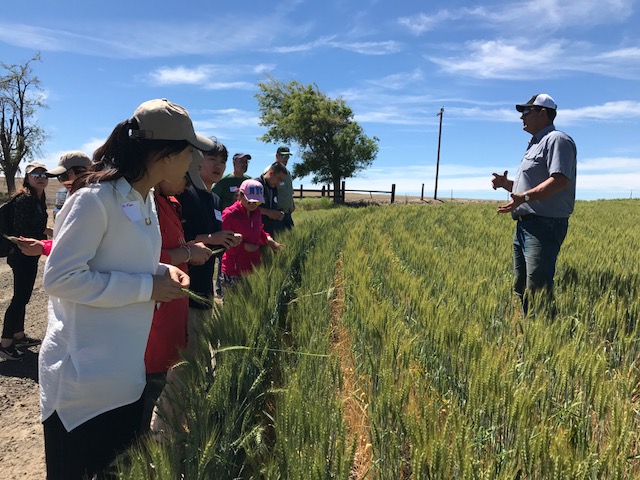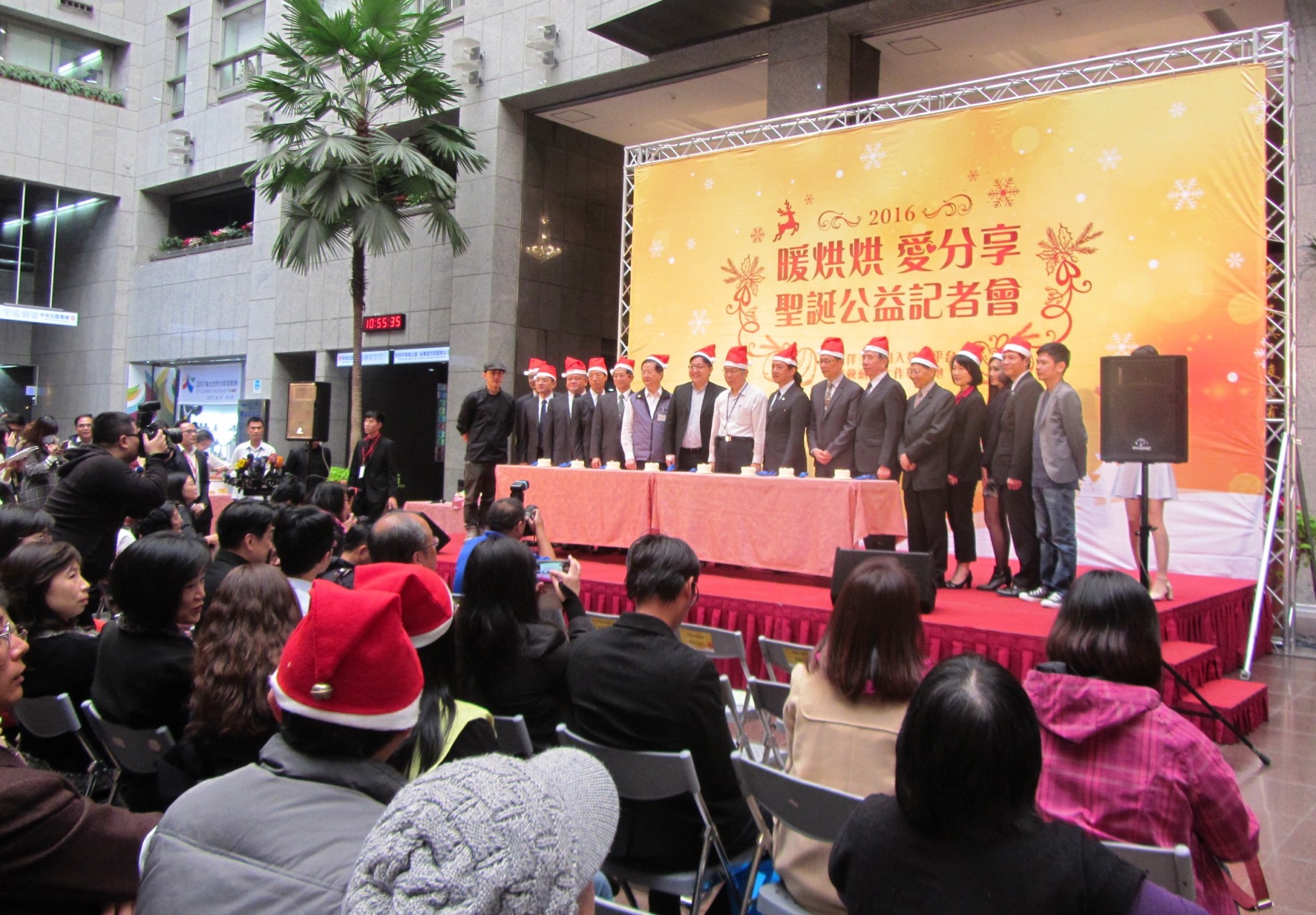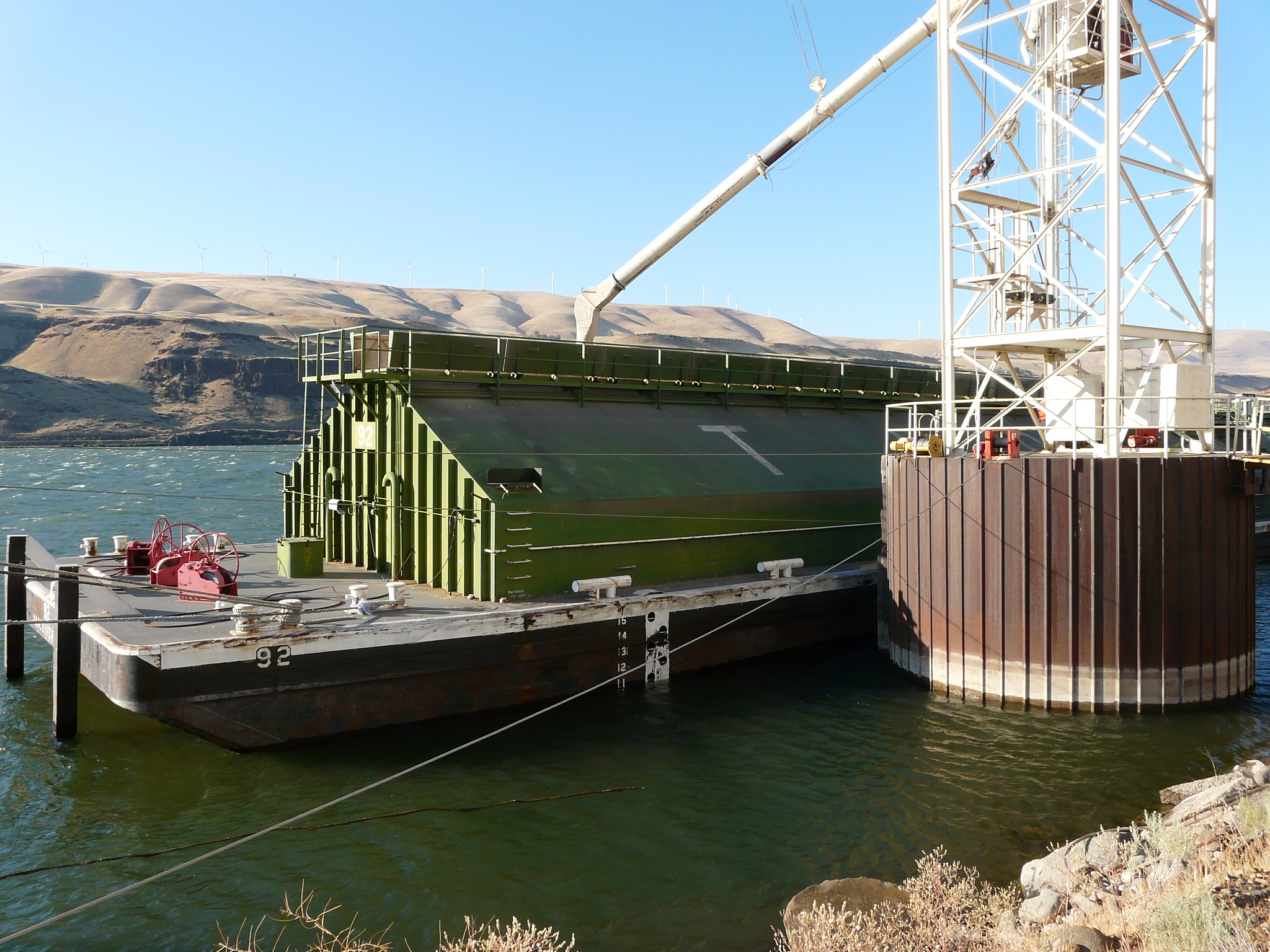As USW President Vince Peterson often says, at any given hour of the day there is someone, somewhere, talking about the quality, reliability and value of U.S. wheat. Wheat Letter wants to share some of the ways USW was working in September and October to promote all six classes of U.S. wheat in an ever more complex world grain market.
Asia. USW scheduled several meetings and wheat grading and flour milling seminars for Rob Bundy, Quality Assurance Specialist with the Federal Grain Inspection Service (FGIS), during a temporary duty (TDY) assignment to Southeast Asia in September. Throughout his trip, Bundy made stops with USW staff in China, Singapore, Myanmar, the Philippines, Taiwan and Japan. He discussed U.S. wheat grading procedures and documentation with hands-on grading exercises, wheat classes and characteristics as well as the FGIS review and appeals processes.
China. USW worked with a flour mill to help sponsor the Savor USA Home Baking Competition held in China via the online platform, WeChat, where contestants could submit recipes and food photographs. USDA’s Agricultural Trade Office (ATO) in Shanghai created the competition to bring together U.S. ingredient providers and Chinese customers, and capitalize on increasing interest in home baking. USW chef consultant Heinz Fischer demonstrated U.S. wheat flour performance with a live baking demonstration at the competition’s award ceremony.
United Arab Emirates (UAE). In October, USW participated in the 28th Annual International Association of Operative Millers (IAOM) Middle East and North Africa (MEA) Conference and Expo 2017, in Dubai, UAE. As a founding organization of the IAOM MEA, USW has maintained an active role in the annual event. Vice President of Overseas Operations Mark Fowler and Regional Vice President Ian Flagg are currently members of the IAOM MEA Leadership Council.
Philippines. Also in October, USW staff conducted two baking workshops entitled “The Korean Way of Bread Making,” to help Philippine bakers diversify product offerings and production techniques. The workshops focused on Korean baking processes and formulations, including several Korean pan bread and baguette styles.
Mexico. Colleagues from USW Mexico City conducted a Transportation and Logistics Workshop in Mexico, Sept. 11 to 13 for wheat buyers and executives from U.S. and Mexican railroads. Forty-five participants, attended the workshop to learn more about vital information and technology used to facilitate U.S. wheat shipments to Mexico via rail.
Belgium. USW participated in the 57th European Commodities Exchange, Oct. 12 to 13, in Brussels, Belgium, which attracted 3,000 professionals involved in grain trade and processing from 56 countries. Visitors to the USW booth received updates on U.S. wheat quality data and marketing and were invited to USW’s upcoming Crop Quality Seminars.
Costa Rica. USW conducted an on-site Contracting for Wheat Value Seminar with a leading Costa Rican flour miller in September. USW Consultants Dr. Bill Wilson from North Dakota State University and Shawn Thiele from the IGP Institute helped lead the seminar with a focus on how to increase U.S. wheat value by making appropriate adjustments to purchasing specifications and production methods. Staff from the mill’s purchasing, quality control and production departments learned how to maximize the value gained from quality attributes such as lower moisture content and maximizing flour extraction rates through proper tempering times.
Colombia. The Servicio Nacional de Aprendizaje (SENA) is Colombia’s largest technical institute that prepares students for technical service jobs, including bakers. USW Consultant Didier Rosada conducted a five-day seminar for SENA instructors from the bread baking department, with the goal of providing improved baking methods to incorporate into the regular SENA curriculum. The seminar also provided a chance to discuss the characteristics and end uses of U.S. wheat classes.
Chile and Bolivia. USW Consultant Jay O’Neil traveled to La Paz, Bolivia, and Santiago, Chile, to conduct purchasing seminars for wheat buyers. He focused on the U.S. wheat production and marketing systems, U.S. grain standards, purchasing contracts and negotiations, futures markets and ocean freight. USW covered wheat classes and their use, and in Bolivia, a local grain trader led a discussion on the current Bolivian market.
Ecuador. USW and milling consultant Andrea Saturno, traveled to Quito, Ecuador, to conduct two technical milling seminars, Oct. 17 to 20. The first seminar for a private mill focused on the control elements critical to maintaining efficiency and quality. The second seminar for ASEMOL, the Ecuadorian Milling Association, included an introduction to wheat cleaning, tempering, quality control, mill performance, new developments in milling science and the best application of U.S. wheat classes for different end products. An FGIS official joined the seminar to discuss the U.S. grain grading system and different buying strategies, and led a hands-on activity to identify grain damage.
South Korea. Wheat import managers and wheat flour quality control managers from flour mills in Korea participated in a Contracting for Value Workshop at the Wheat Marketing Center (WMC), Aug. 19 to 26, in Portland, Ore. During the workshop, the participants also visited the EGT export facility in Longview, Wash., met with several grain traders and toured an Oregon wheat farm. In the WMC lab, participants saw several functional test demonstrations and participated in WMC product evaluations on a variety of end products.
Indonesia. In August and September, USW’s milling and baking specialists provided in-plant consultations for four of Indonesian flour milling companies on the island of Java, and sanother milling company in Medan on the island of Sumatra. The consultations focused on contracting for U.S. wheat value, best practices to improve end product quality, baking tests, troubleshooting technical issues and concerns, assessing potential opportunities and increasing the use of solvent retention capacity (SRC) tests to analyze flour streams.

